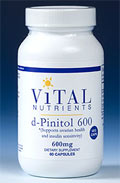PCOS Review Newsletter #34
1) PCOS Women Have Reduced Lung Function
2) Does Metformin Impair Progesterone Production?
3) Why You Should Eat Vegetables and Fruits
1) PCOS Women Have Reduced Lung Function
A rather disturbing study just came to our attention from Federico II University in Italy. They compared 45 PCOS women to 45 healthy women. They were 21 years of age and were matched for weight. The researchers performed lung function tests and discovered that the PCOS group had a significantly reduced lung function.
To put it simply, this study shows that young women with polycystic ovary syndrome do not breathe as well as other women. Decreased lung function is one of the basic biomarkers of aging. What was disturbing is that these women were only 21 years old! They should be at the prime of life. No one should have impaired lung function at this age.
The researchers mention that insulin resistance may play a role in this problem.
What to do?
There are two basic things you can do to improve your lung
function:
1) Get more exercise.
2) Consume a healthier
diet so that you can reduce insulin resistance and lose
weight (if needed).
From our standpoint, exercise is not something you do when you
feel like it. Exercise and physical activity should be a core
element of your daily life. Even if you are overweight or not
physically fit, there is something physical you can do, even if
it is a walk around the block.
Source:
Orio, F et al, Cardiopulmonary impairment in young women with
polycystic ovary syndrome, J Clin Endocrinol Metab. 2006 Jun
6; [Epub ahead of print]
2) Does Metformin Impair Progesterone Production?
If you have a problem with polycystic ovaries or have been diagnosed with PCOS, the first thing your doctor is likely to do is prescribe birth control pills and/or metformin.
Metformin is mainly used to "sensitize" you to insulin so that insulin resistance is reduced and your symptoms will diminish. Ask you doctor to first determine if you actually have insulin resistance before deciding if treatment with metformin is logical for you. One method to assess insulin resistance is to look at the ratio between fasting glucose and insulin levels. A ratio of less than 4.5 is associated with insulin resistance.
Metformin is a useful therapy for women who can tolerate it. It has a number of side effects as well as benefits, as we reviewed on our Metformin web page.
We haven't noticed much discussion of whether or how metformin affects progesterone. So we were surprised to see a study published recently in the Biology of Reproduction that showed ovarian progesterone production to be impaired when rats were given metformin.
Rats are not humans. But if metformin does impair progesterone production in human ovaries, you would want to note that as another "side effect" of metformin.
Some women with PCOS have a progesterone deficiency to begin with, or they don't produce enough progesterone. It appears that metformin does not relieve this problem and may actually worsen it. To learn more about progesterone, please visit our Progesterone web page.
This study is nothing to be alarmed about, but you should always
be aware that every drug you take has both benefits and
undesirable side effects. It's wise to learn as much as you can
about the drugs you are taking.
Source:
Tosca, L et al, Metformin-induced Stimulation of AMP-Activated
Protein Kinase (PRKA) Impairs Progesterone Secretion in Rat
Granulosa Cells, Biol Reprod. 2006 Jun 7; [Epub ahead of
print]
3) Why You Should Eat Vegetables and Fruits
There are many reasons why you should eat whole, fresh vegetables and fruits. One reason is that they are anti-inflammatory.
Why should you care? You should care because a major aspect of polycystic ovary syndrome and all of its related symptoms is chronic inflammation. Numerous studies have shown that PCOS women have more inflammation than other women. Chronic inflammation is often not something you will notice. So you can have the problem and not know it.
Polycystic ovarian syndrome is a disorder that you want to approach from different directions. One direction is to do everything you can to reduce chronic inflammation.
Colored vegetables and fruits contain substances called carotenoids, which are plant pigments. Carotenoids have been shown to reduce C-reactive protein, which is a laboratory marker that indicates general inflammation.
Therefore, consumption of vegetables and fruits is an excellent
way to reduce inflammation. The recommended list of vegetables
and fruits in our book
are very high in the protective carotenoids. Please refer in the
book to these lists as well as our discussion of carotenoids.
Source:
Watzl, B et al,A 4-wk intervention with high intake of
carotenoid-rich vegetables and fruit reduces plasma C-reactive
protein in healthy, nonsmoking men, Am J Clin Nutr, 2005;
82(5):1052-8
Thought for Today: "It's faith in something and enthusiasm for something that makes life worth living." -- Oliver Wendell Holmes, Jr.
PCOS Health Review
This free newsletter gives you original and immediately usable information to help you deal with PCOS.
Get the latest research, tips for improving your health, answers to questions, success stories, and more!
Your e-mail address is totally secure. We will never misuse your information.
Enter Your Email Above to Subscribe Today
and Get Your Questions Answered in this Free Special Report!





